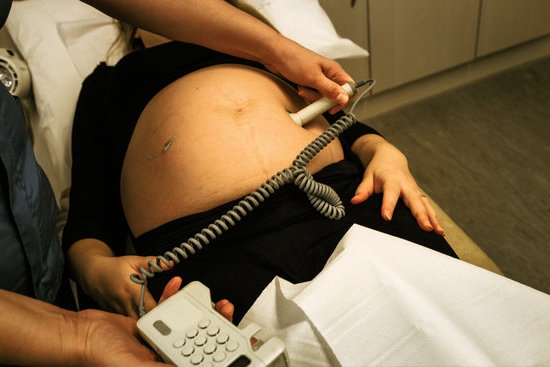Can pre ejaculation lead to pregnancy? This is a common question among individuals who are concerned about the possibility of unintended pregnancy. Understanding pre-ejaculation and its potential impact on pregnancy is essential for making informed decisions about sexual health and contraception. In this article, we will explore what pre-ejaculation is, how it occurs, and the role it plays in fertility and pregnancy.
Pre-ejaculation, also known as pre-cum or pre-seminal fluid, refers to the clear, colorless fluid that is released from the male urethra during sexual arousal. There is a widespread misconception that pre-ejaculation does not contain sperm, but research has shown that it can indeed contain viable sperm. This raises the possibility of pregnancy occurring from pre-ejaculation, even without full ejaculation during intercourse.
It is important to understand the potential risks and likelihood of pregnancy from pre-ejaculation in order to make informed choices regarding sexual activity and contraception. This article aims to provide clarity on this topic by addressing common myths and misconceptions about pre-ejaculation and offering practical tips for safe sex practices to avoid unwanted pregnancy.
Understanding Pre-Ejaculation
Pre-ejaculation, also known as pre-cum, is a clear, colorless fluid that can be released from the penis during sexual arousal and before ejaculation. It is produced by the Cowper’s glands and serves to lubricate the urethra and neutralize any acidity from urine that may remain in the urethra. Despite its purpose, pre-ejaculate can still contain sperm, which can lead to pregnancy if it comes into contact with the vagina during sexual intercourse.
Pre-ejaculate occurs naturally when a man becomes sexually aroused. Even before ejaculation, this fluid can be released from the penis either due to direct genital stimulation or as a response to sexual thoughts or sensations. It is important for both men and women to understand that pre-ejaculate can potentially contain sperm, which can lead to pregnancy if proper precautions are not taken.
There are several misconceptions about pre-ejaculation, including beliefs that it does not contain sperm or cannot result in pregnancy. However, research has shown that some samples of pre-ejaculate do indeed contain sperm.
While it may not always contain enough sperm to result in pregnancy, it is still possible for conception to occur if pre-ejaculate enters the vagina during sexual activity. It is crucial for individuals who engage in sexual activities to be aware of these facts and take necessary precautions to prevent unwanted pregnancy.
Fertility and Pregnancy
Pre-ejaculation, also known as pre-cum, is the fluid that is released from the penis during sexual arousal before ejaculation. This clear, sticky fluid can contain sperm and may lead to pregnancy if it comes into contact with the vagina. It is important to understand that pre-ejaculation does have the potential to lead to pregnancy, especially if proper precautions are not taken.
Understanding how pregnancy can occur from pre-ejaculation involves recognizing that this fluid can carry a small amount of sperm. Even if a man urinates before sexual activity, there may still be some leftover sperm in the urethra that can mix with pre-ejaculate during arousal. If this fluid enters the vagina during intercourse, there is a possibility for the sperm in pre-ejaculation to fertilize an egg, leading to pregnancy.
It’s essential for individuals who engage in sexual activity to be aware of the role pre-ejaculation plays in fertility and take necessary precautions. Using contraception such as condoms or other forms of birth control can help prevent unintended pregnancy by acting as a barrier to prevent pre-ejaculate from entering the vagina. Additionally, practicing safe sex and communication between partners about contraceptive methods are important factors in preventing unwanted pregnancy due to pre-ejaculation.
Pregnancy Risks
Pre-ejaculation, also known as pre-cum, is a clear fluid that can be released from the penis during sexual arousal. While it may not contain sperm in every instance, there is a possibility that sperm from a previous ejaculation can still be present in the urethra and mix with pre-ejaculate.
This raises the question: can pre ejaculation lead to pregnancy? The answer is yes, it is possible for pregnancy to occur due to the presence of sperm in pre-ejaculate.
It is important to understand that pre-ejaculate itself does not contain sperm on its own, but if there are any live sperm left in the urethra from a previous ejaculation, it can be picked up and carried by the pre-ejaculate. This means that even without full ejaculation, there is still a risk of pregnancy if unprotected sexual intercourse occurs. Couples should be aware of this risk and take appropriate precautions to prevent unwanted pregnancies.
The likelihood of pregnancy from pre-ejaculation may vary depending on factors such as the male partner’s reproductive health, timing of intercourse, and overall fertility of both partners. However, it is crucial for individuals engaging in sexual activity to recognize that pre-ejaculation carries a potential risk of pregnancy and to take necessary measures to prevent it.
Utilizing contraceptive methods such as condoms or other forms of birth control can significantly reduce the risk of unplanned pregnancy and protect against sexually transmitted infections.
Contraception and Pre-Ejaculation
Types of Contraception
There are several methods of contraception that can be used to prevent pregnancy, including condoms, birth control pills, intrauterine devices (IUDs), and hormonal implants. Condoms are the only form of contraception that can provide protection against sexually transmitted infections (STIs) as well as preventing pregnancy. It is important for couples to discuss and decide which method of contraception is best for them based on their individual health needs and lifestyle.
The Role of Contraception in Preventing Pregnancy From Pre-Ejaculation
Using contraception is crucial in preventing pregnancy, especially when it comes to pre-ejaculation. While there may be less sperm present in pre-ejaculatory fluid compared to ejaculate, it is still possible for pregnancy to occur if the fluid contains sperm. Using contraception consistently and correctly can help reduce the risk of pregnancy from pre-ejaculation.
Safe Sex Practices
In addition to using contraception, practicing safe sex is important in preventing unwanted pregnancy and reducing the risk of STIs. This includes open communication with sexual partners about contraception and STI prevention, getting tested regularly for STIs, and being mindful of alcohol or drug use that
By understanding the importance of using contraception and practicing safe sex, individuals
Myth Busting
Common myths and misconceptions about pre-ejaculation and pregnancy can lead to misunderstanding and misinformation regarding fertility and the risk of pregnancy. One common misconception is that pre-ejaculate does not contain sperm, making it unlikely to lead to pregnancy. However, this is not entirely true. While pre-ejaculate may contain fewer sperm than a full ejaculation, it can still contain enough sperm to result in pregnancy if it comes into contact with the vaginal canal.
Another myth surrounding pre-ejaculation and pregnancy is the belief that withdrawal before ejaculation can prevent pregnancy. This method, known as the pull-out method, is not a reliable form of contraception as pre-ejaculate can still contain sperm and can potentially lead to pregnancy. It’s important for individuals to understand that pre-ejaculation carries a risk of pregnancy and should not be relied upon as a method of birth control.
Furthermore, there is a misconception that pre-ejaculation only occurs in men who are highly aroused and close to ejaculation. In reality, pre-ejaculate can occur at any point during sexual activity, even before full arousal or penetration. This means that individuals engaging in sexual activity should be aware of the potential for pre-ejaculation regardless of their level of arousal.
Understanding these common myths and misconceptions about pre-ejaculation and its relation to pregnancy is essential in promoting safe sex practices and preventing unwanted pregnancies. Clearing up these misunderstandings can help individuals make more informed decisions about contraception and sexual health, ultimately reducing the risk of unintended pregnancies.
Tips for Safe Sex
When it comes to preventing unwanted pregnancy, understanding the potential risks of pre-ejaculation is crucial. Here are some practical tips and advice for couples to avoid unwanted pregnancy:
- Use contraception: One of the most effective ways to prevent pregnancy is by using contraception such as condoms, birth control pills, or an intrauterine device (IUD). It’s important to discuss with your partner and healthcare provider to find the best option for you.
- Communicate with your partner: Open communication with your partner about contraception and safe sex practices is essential. It’s important to be on the same page and ensure that both partners are taking responsibility for preventing unwanted pregnancy.
- Get tested for sexually transmitted infections (STIs): Prior to engaging in sexual activity, it’s recommended to get tested for STIs. Protecting yourself and your partner from STIs is just as important as preventing pregnancy.
It’s also important to keep in mind that while pre-ejaculation itself may not contain sperm, there is a possibility of sperm being present due to residual sperm left over from a previous ejaculation. Therefore, taking precautions and being informed about safe sex practices can help prevent unintended pregnancy.
Overall, staying informed about the potential risks of pre-ejaculation and taking proactive measures through open communication, contraception use, and regular testing for STIs can greatly reduce the risk of unwanted pregnancy. By prioritizing safe sex practices, couples can enjoy a healthy and fulfilling sexual relationship while minimizing the chances of conception when not desired.
Conclusion
In conclusion, it is clear that pre-ejaculation does indeed have the potential to lead to pregnancy. While the chances may be lower compared to full ejaculation, it is important for individuals to understand and acknowledge the risks involved. Understanding what pre-ejaculation is, how it occurs, and its role in fertility and pregnancy can help individuals make informed decisions about their sexual health and contraceptive practices.
It is crucial for couples to prioritize safe sex practices and use contraception consistently to prevent unintended pregnancy. This includes using condoms, hormonal birth control methods, or other forms of contraception. Additionally, seeking advice from healthcare professionals can provide valuable information on the most effective contraceptive methods and how to properly use them.
Addressing common myths and misconceptions about pre-ejaculation and its potential impact on pregnancy is also important. By dispelling these misconceptions, individuals can make well-informed choices regarding their sexual health and take proactive measures to prevent unwanted pregnancies. Ultimately, understanding the risks associated with pre-ejaculation can empower individuals to make responsible decisions about their reproductive health.
Frequently Asked Questions
How Likely Is It to Get Pregnant From Precum?
It is possible to get pregnant from precum, as it may contain sperm that can fertilize an egg. While the risk is lower compared to ejaculate, it’s not zero, so caution is still necessary.
How Hard Is It to Get Pregnant at 42?
Getting pregnant at 42 can be more challenging due to declining fertility with age. The quality and quantity of eggs decrease, making conception more difficult. However, it’s still possible with medical assistance.
Why Do I Get Pregnant So Easily?
Some individuals may get pregnant easily due to various factors such as reproductive health, timing of ovulation, and overall fertility. Genetics, age, and hormonal balance also play significant roles in how easily one gets pregnant.

Welcome to my fertility blog. This is a space where I will be sharing my experiences as I navigate through the world of fertility treatments, as well as provide information and resources about fertility and pregnancy.





